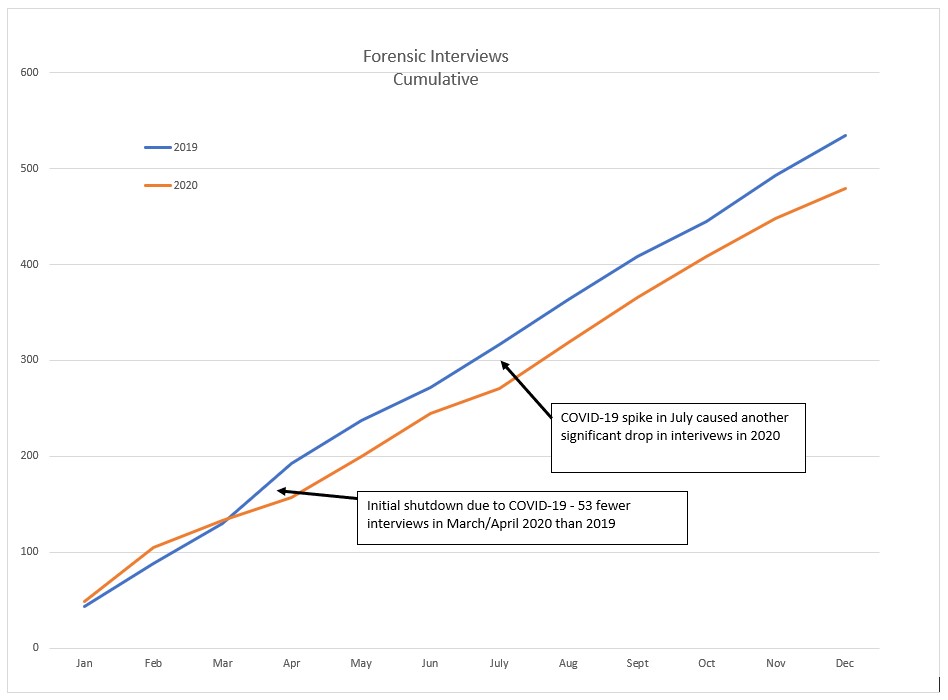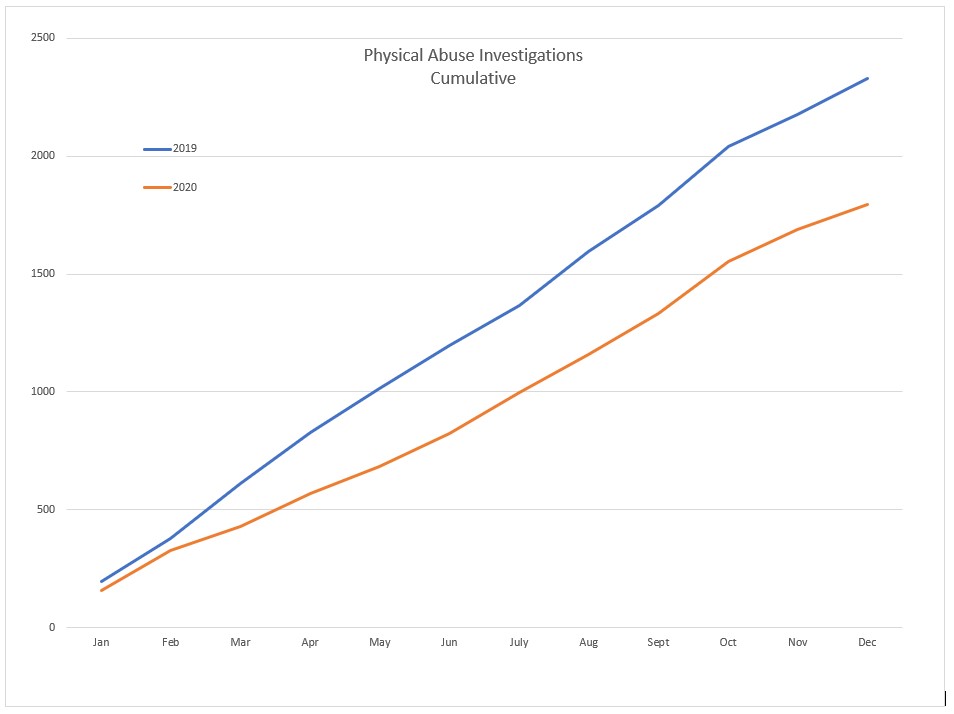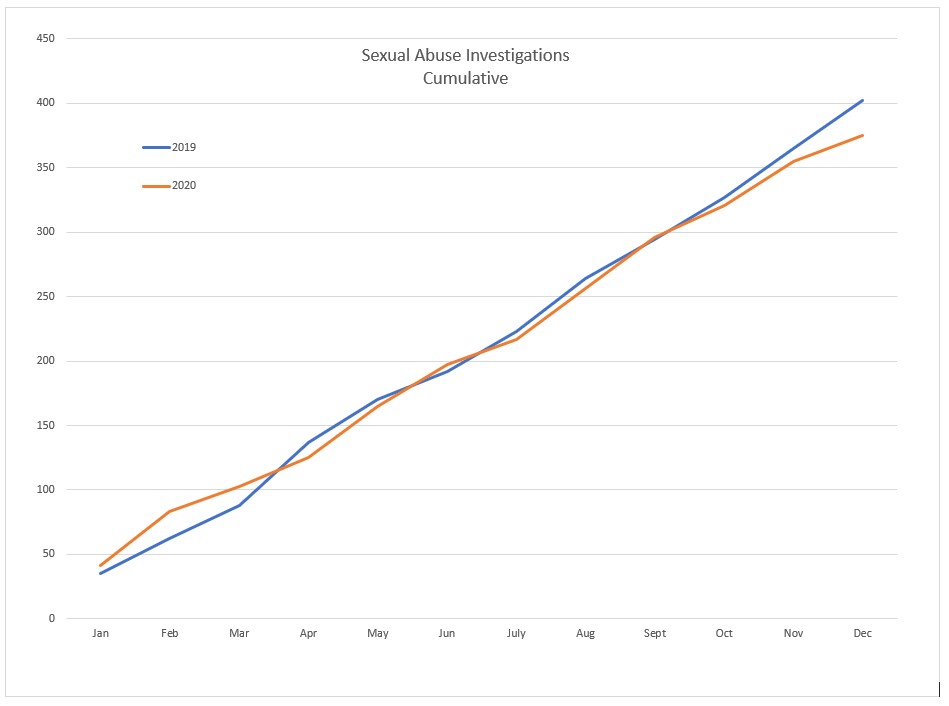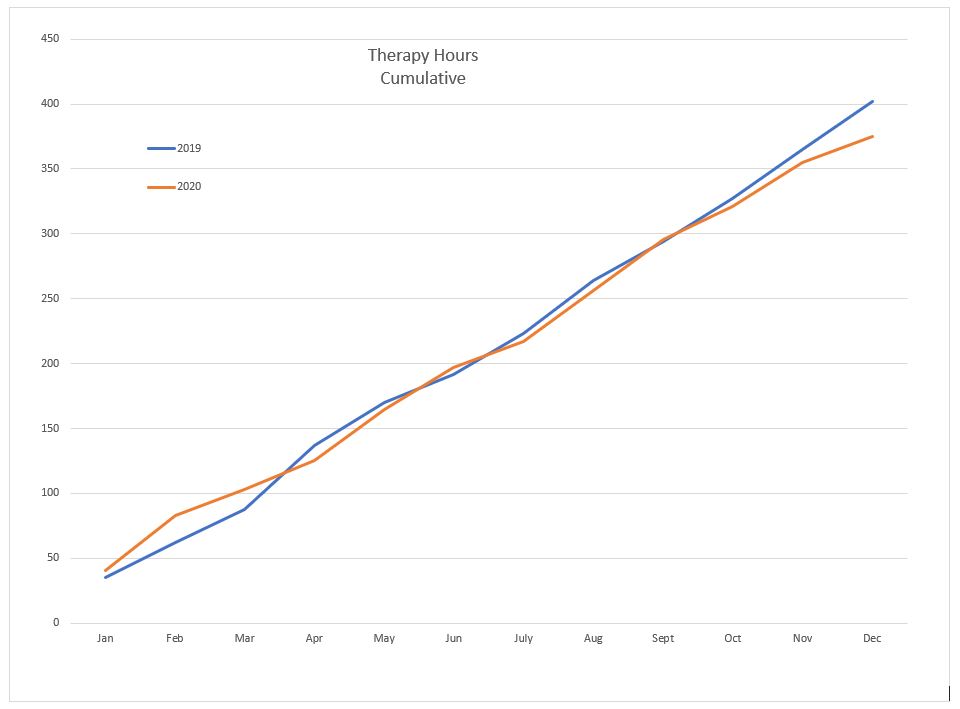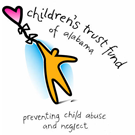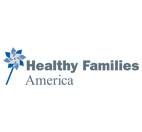Pandemic-related shutdowns lead to substantial decrease in forensic interviews regarding allegations of child abuse
Huntsville, Alabama – The National Children’s Advocacy Center (NCAC) saw a 10.3% decline in the number of children interviewed following allegations of abuse in 2020 compared to 2019. This decline is mainly attributed to the initial shutdown in March and April of 2020 when most businesses and schools were closed due to the initial COVID-19 outbreak in the United States. The organization experienced another substantial decrease in July 2020 when Madison County experienced its first significant COVID-19 spike. Forensic interviews are performed by specially trained interviewers employed by the National Children’s Advocacy Center to assist law enforcement and the Department of Human Resources in determining what happened after a report of physical or sexual child abuse or severe neglect.
This drop in cases does not indicate fewer cases of abuse, instead it reinforces the importance of our teachers, counselors, and other mandatory reporters. The shutdowns during 2020 prevented children from having access to these adults, which led to a significant drop in reporting both in our community and nationwide.
Statistics of Note (please see attached charts for specific numbers):
- The initial shutdown in March and April 2020 led to 53 fewer forensic interviews than the same timeframe in 2019.
- The July 2019 COVID-19 spike led to 19 fewer forensic interviews than the same timeframe in 2019.
- The NCAC conducted 21% fewer forensic interviewers following allegations of physical child abuse in 2020 as compared to 2019; however, the cases seen by our child abuse response professionals were more acute, and often had more severe or life threatening injuries to the child.
- NCAC Family Advocates conducted 40% more follow ups with families receiving services than in the previous year.
- NCAC provided 1,794.5 hours of evidence-based mental health services through in person and telemental health. Telemental health services were offered beginning in April. This was made possible through multiple grants and donations which allowed us to purchase and provide iPads and Mifi’s to clients who did not have the means to participate otherwise.
Parents and community members can help prevent child abuse and alert authorities when abuse is expected by taking the following steps:
- Learn the facts
- Minimize opportunity
- Talk about it
- Recognize the signs after participating in a Steward’s of Children® Training through the NCAC
- React responsibly by alerting law enforcement or the Alabama Department of Human Resources


